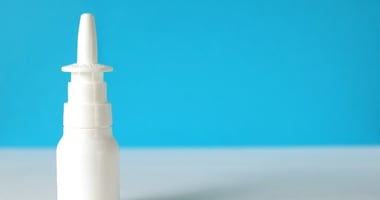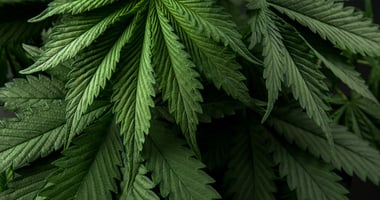A study published today in JAMA Internal Medicine reports that the cannabinoid agonist nabiximols...
CBD May Help Patients With Cannabis Use Disorder Reduce Use
 |
Cannabidiol (CBD) may be helpful at reducing cannabis use in people with cannabis use disorder, according to a report in Lancet Psychiatry. Study participants who took 400 mg or 800 mg of CBD daily for four weeks reported more days of cannabis abstinence than those who took placebo.
“[O]ur trial provides the first causal evidence supporting cannabidiol as a treatment for cannabis use disorders,” wrote Tom Freeman, Ph.D., of the University of Bath and colleagues. “These findings are important in light of major policy changes surrounding the production and sale of cannabis products, increases in the number of people entering treatment for cannabis use disorders worldwide, and the absence of recommended pharmacotherapies at present.”
Freeman and colleagues recruited individuals aged 16 to 60 who had cannabis use disorder of at least moderate severity (four or more of the DSM-5 diagnostic criteria) and expressed a desire to quit using cannabis for a two-stage adaptive study.
In the first stage, 48 participants were randomly assigned to receive CBD (200 mg, 400 mg, or 800 mg) or placebo daily for four weeks. All participants also received six 30-minute, individual motivational interviewing sessions during this time.
After four weeks, the investigators conducted an interim analysis and concluded that while 400 mg and 800 mg CBD were more effective than placebo at reducing cannabis use, 200 mg CBD was not more effective than placebo. The investigators then enrolled 34 more participants who received four weeks of placebo, 400 mg CBD, or 800 mg CBD. Seventy-seven (94%) of 82 participants completed treatment. The final analysis included data from 23 people who took placebo, 24 who took 400 mg CBD, and 23 who took 800 mg CBD.
Freeman and colleagues found that both doses of CBD were more effective than placebo at reducing cannabis use, with the 400 mg dose being slightly more effective. Compared with placebo, participants who took 400 mg or 800 mg CBD used cannabis 0.48 and 0.27 fewer days a week, respectively. Urine tests also confirmed lower levels of cannabis metabolites in people taking the CBD. CBD was well tolerated and produced no serious side effects.
“It is important to be aware that this dose range (400 mg to 800 mg) is considerably higher than concentrations found in cannabidiol products widely available without a prescription,” Freeman and colleagues cautioned. “These products have inadequate quality assurance and should not be used for medicinal purposes.”
For related information, see the Psychiatric News article “Medications May Ease Cannabis Withdrawal But Fail to Achieve Abstinence.”
(Image: iStock/Nastco)
Please Take a Few Moments to Complete APA Survey on Racism
The APA Presidential Task Force to Address Structural Racism Throughout Psychiatry invites you to complete the second in a series of surveys on how racism impacts the field of psychiatry. Your answers will be anonymous. They will be used to inform the Task Force’s work and may be anonymously cited in future work. The survey is open from July 23 to August 6.





